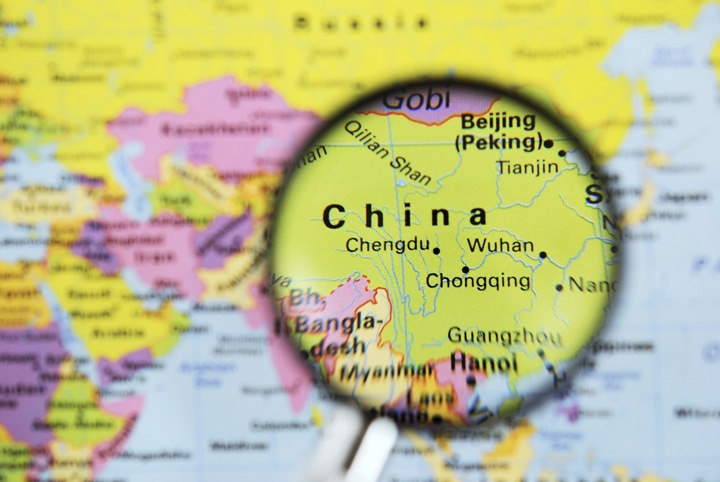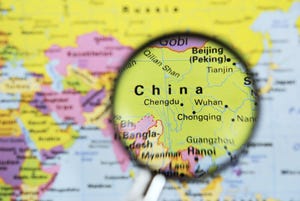For businesses in China, breaking up is hard to do
The hottest trend in U.S. manufacturing is reshoring, and this means big opportunities for plastics manufacturers. According to a recent study by Boston Consulting Group, 54% of all U.S. companies with more than $1 billion in revenues are planning or considering reshoring at least some of their manufacturing. Wal-Mart's U.S. manufacturing initiative promises to buy $250 million in U.S.-made consumer goods over 10 years. All of this reshoring will drive the need for plastic parts and products.
August 21, 2015

The hottest trend in U.S. manufacturing is reshoring, and this means big opportunities for plastics manufacturers. According to a recent study by Boston Consulting Group, 54% of all U.S. companies with more than $1 billion in revenues are planning or considering reshoring at least some of their manufacturing. Wal-Mart's U.S. manufacturing initiative promises to buy $250 million in U.S.-made consumer goods over 10 years. All of this reshoring will drive the need for plastic parts and products.
 Cost comparisons and time-to-market research suggest that companies should be manufacturing local products in local markets. Even with the devaluation of China's currency this month, which instantly made Chinese products less expensive, interest in making products locally continues to gain momentum. This means that many plastics manufacturers will leave China and establish production facilities back home in the United States and Europe.
Cost comparisons and time-to-market research suggest that companies should be manufacturing local products in local markets. Even with the devaluation of China's currency this month, which instantly made Chinese products less expensive, interest in making products locally continues to gain momentum. This means that many plastics manufacturers will leave China and establish production facilities back home in the United States and Europe.
But it's not that easy. Plastics processors cannot expect to simply pack up their equipment, turn out the lights and lock the doors. There are issues to consider when leaving China.
Employers can be held hostage
Western executive Chip Starnes is the president of a Florida-based medical supplies company that decided to leave its manufacturing site in China for an even lower-cost manufacturing site in India. When the Chinese employees got wind of what was happening, they locked him in his office for days and would not allow him to leave.
In China, it is not that unusual for managers to be held by workers demanding back pay or other benefits owed to them. The local police won't step in, as they consider these to be private business disputes.
If a company has allowed open-term contracts with its employees, the employer may be required by Chinese law to compensate the employees for early termination. If employees are on fixed-term contracts, the employer may be required to pay wages until the end of the term.
Tools and molds may need to be left behind
Packing up and shipping, or just trying to retrieve tools and molds from a Chinese manufacturing site, can be problematic. Often, a Western manufacturer will send machine tools or molds to a Chinese original equipment manufacturer or to his or her own Chinese factory. In other cases, tools and molds are procured in China, where the cost is far less. Unless a company has agreed in writing otherwise, the Chinese will say that the tools and molds belong to the factory and will not be returned.
If the tools and molds stay behind when a company leaves a Chinese factory, this equipment is likely to continue be used. The equipment may be used to produce the same goods that are then sold domestically in the Chinese market, or to other markets around the world, without the original company's supervision or permission.
Think about manufacturing-related intellectual property
We've all heard the horror stories about IP protection, copying and counterfeiting in China. When a company leaves China, it also leaves processes and methods that may not be legally protected. To protect their IP, most U.S. companies now register their patents and brands in China. But production methods and raw materials aren't always included.
Before shutting down a Chinese factory, consideration must be given to manufacturing IP. In reality, there are few, if any, practical ways to protect manufacturing IP once the Chinese factory work is over and manufacturing operations have been reshored. In planning for a closure, companies should expect the worst regarding IP, and expect to have their product copied.
Taxes, a parting gift
In addition to paying out employment contracts, there may be other regulations and taxes that must be considered. China's Commerce Department has issued guidelines for withdrawal from China by foreign investors. The intent is to protect Chinese creditors and others from manufacturers that try to escape in the middle of the night. China law requires that foreign investors inform creditors of the closing, settle all outstanding taxes, pay all pending debts, liquidate property, and de-register the business. In addition, companies may be required to pay closing taxes.
Getting permission to leave and pay all of the associated fees and taxes will take some time, probably three to six months. Leaving without completing the exit process is not recommended and may disallow companies from ever returning to China.
The way forward
Many companies simply compare labor or energy costs when determining their reshoring pathway, but there is so much more to a reshoring decision. In particular, companies should consider all of the exit costs, including employee payments, tooling and molds, IP protection, exit taxes and fees when considering restart costs in the United States.
The author of this article, Rosemary Coates, is Executive Director of the Reshoring Institute, a 501c3 non-profit in collaboration with the University of San Diego. She is also President of Blue Silk Consulting, a global supply chain consultancy. She is the author of five books, some of which have been Amazon bestsellers: 42 Rules for Sourcing and Manufacturing in China, 42 Rules for Superior Field Service, Negotiation Blueprinting for Buyers, The Reshoring Guidebook and Legal Blacksmith - How to Avoid and Defend Supply Chain Disputes. A management consultant for 25 years, Coates serves on the Board of Directors of the University of San Diego Supply Chain Management Institute and teaches global supply chain strategy at UC Berkeley.
About the Author(s)
You May Also Like


